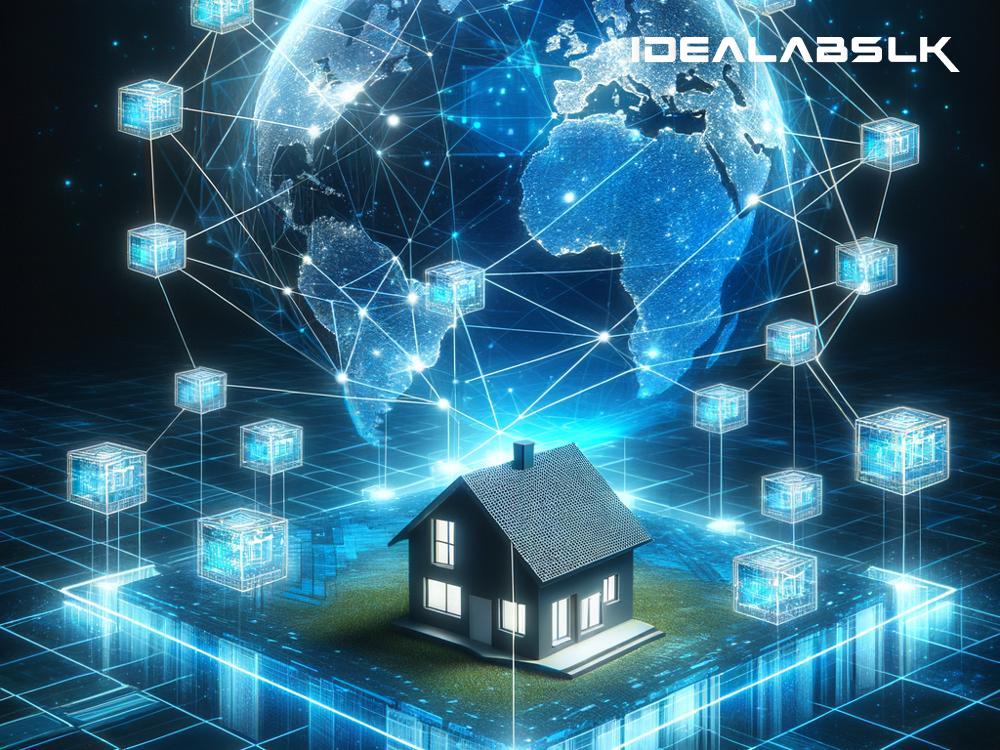Smart Real Estate Contracts on Blockchain: Simplifying Property Transactions
In today’s fast-paced world, the real estate market is evolving, and so are the ways we buy, sell, and lease properties. One of the most exciting innovations in this space is the introduction of smart contracts on the blockchain. This technology is not just changing how transactions are conducted but also simplifying them, adding a layer of security, and making them more transparent than ever before. Let’s break down what this means in simple English.
What is Blockchain?
Imagine a digital ledger that is accessible to many people at once and is almost impossible to cheat. This ledger records all transactions chronologically and publicly. That’s blockchain for you. It’s the technology behind cryptocurrencies like Bitcoin, but its use cases stretch far beyond that, especially into the realm of real estate.
What are Smart Contracts?
Smart contracts are self-executing contracts with the terms of the agreement between buyer and seller directly written into lines of code. These contracts automatically enforce and execute the terms of the agreement when certain conditions are met, without the need for intermediaries. Essentially, they are like vending machines – you put something in, and if the input meets the programmed conditions, you get what you're supposed to get out of it.
How Do Smart Real Estate Contracts Work?
In the context of real estate, smart contracts on the blockchain can revolutionize the way properties are bought, sold, or rented. Here’s a simplified breakdown:
-
Listing and Searching for Properties: Sellers can list their properties on a blockchain-based platform, and buyers can search for properties. All the details including the price, location, and specifications of the property are recorded on the blockchain.
-
Making an Offer and Acceptance: When a buyer decides to make an offer on a property, they can do so through a smart contract. Once the seller agrees to the terms, the contract automatically moves to the next stage.
-
Verification and Due Diligence: The blockchain verifies ownership and ensures that the property is free from any liens or disputes through its transparent, unalterable record system.
-
Payment and Transfer: The payment is held in escrow within the smart contract and only released when all the conditions are fulfilled. Upon payment, the property title is automatically transferred to the buyer.
This process significantly reduces paperwork, speeds up transactions, and minimizes the risk of fraud.
The Advantages of Smart Real Estate Contracts
1. Transparency: Since blockchain records are accessible by all parties and cannot be changed retroactively, there’s a high level of transparency in transactions.
2. Efficiency and Speed: The automation of contracts eliminates the need for intermediary parties such as lawyers and real estate agents, making the process faster and more cost-efficient.
3. Security: Blockchain’s encryption technology ensures that all transactions are secure and tamper-proof.
4. Accessibility: Blockchain technology democratizes property transactions, making it easier for small investors to enter the real estate market.
Challenges and Considerations
Despite its benefits, the adoption of smart real estate contracts on the blockchain faces several challenges. These include regulatory hurdles, as the legal framework in many countries is yet to catch up with this technology. There’s also the issue of technical complexity and the need for a cultural shift, as both sellers and buyers need to trust and understand the technology.
The Future of Real Estate Transactions
As technology advances and regulatory frameworks evolve, it is likely that the use of smart contracts in real estate will become increasingly common. This could lead to a more efficient, transparent, and secure way of conducting property transactions globally.
In Conclusion
Smart real estate contracts on the blockchain are pioneering a new era in property transactions. By automating and digitizing the process, they offer a host of benefits, including transparency, efficiency, security, and accessibility. While there are challenges to overcome, the potential for transforming the real estate market is immense. As the technology continues to develop and become more integrated into our daily lives, the dream of a simplified and trustworthy real estate process seems increasingly within reach.
By embracing these changes, we can look forward to a future where buying a house or renting an apartment is as easy, if not easier, than ordering a book online. The potential is boundless, and the journey towards smarter real estate transactions has just begun.

